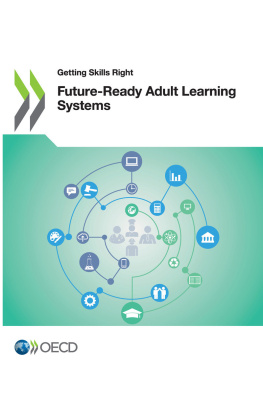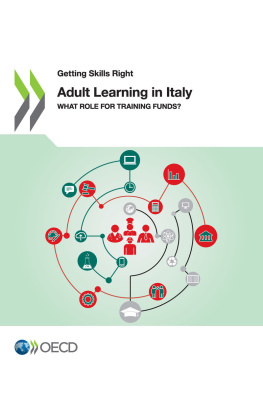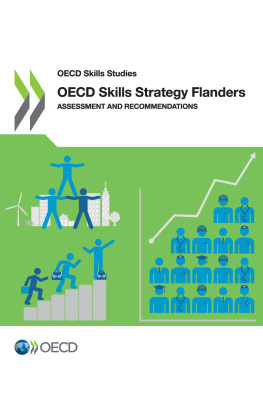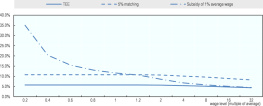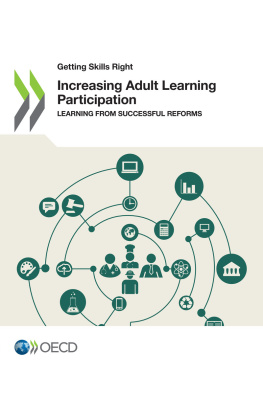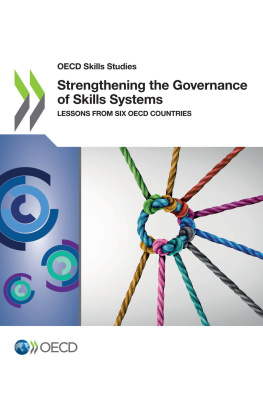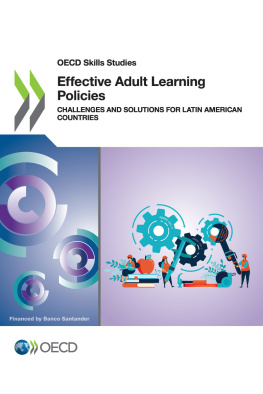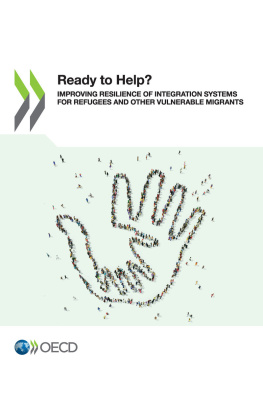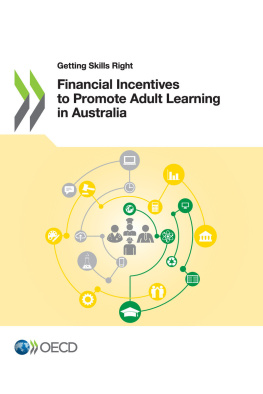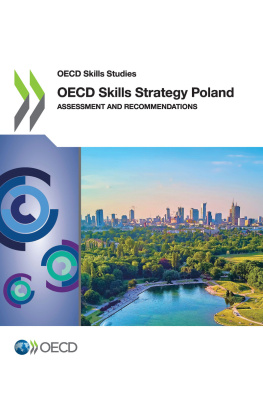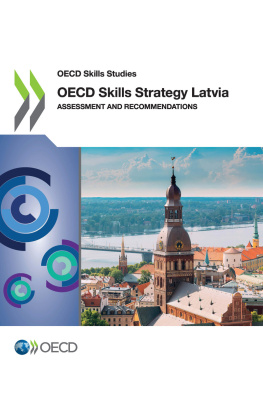OECD - Getting Skills Right: Future-Ready Adult Learning Systems
Here you can read online OECD - Getting Skills Right: Future-Ready Adult Learning Systems full text of the book (entire story) in english for free. Download pdf and epub, get meaning, cover and reviews about this ebook. year: 2019, publisher: OECD Publishing, genre: Politics. Description of the work, (preface) as well as reviews are available. Best literature library LitArk.com created for fans of good reading and offers a wide selection of genres:
Romance novel
Science fiction
Adventure
Detective
Science
History
Home and family
Prose
Art
Politics
Computer
Non-fiction
Religion
Business
Children
Humor
Choose a favorite category and find really read worthwhile books. Enjoy immersion in the world of imagination, feel the emotions of the characters or learn something new for yourself, make an fascinating discovery.
Getting Skills Right: Future-Ready Adult Learning Systems: summary, description and annotation
We offer to read an annotation, description, summary or preface (depends on what the author of the book "Getting Skills Right: Future-Ready Adult Learning Systems" wrote himself). If you haven't found the necessary information about the book — write in the comments, we will try to find it.
OECD: author's other books
Who wrote Getting Skills Right: Future-Ready Adult Learning Systems? Find out the surname, the name of the author of the book and a list of all author's works by series.
Getting Skills Right: Future-Ready Adult Learning Systems — read online for free the complete book (whole text) full work
Below is the text of the book, divided by pages. System saving the place of the last page read, allows you to conveniently read the book "Getting Skills Right: Future-Ready Adult Learning Systems" online for free, without having to search again every time where you left off. Put a bookmark, and you can go to the page where you finished reading at any time.
Font size:
Interval:
Bookmark:
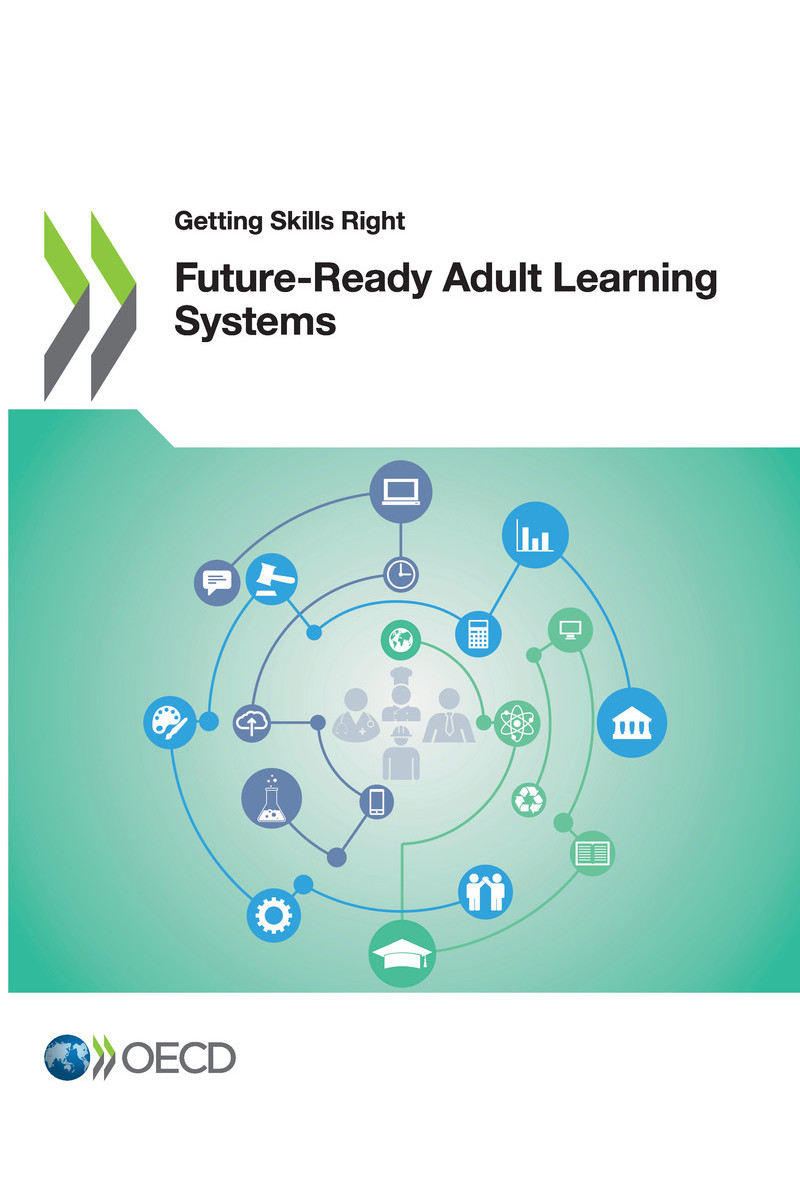
OECD (2019), Getting Skills Right: Future-Ready Adult Learning Systems , Getting Skills Right, OECD Publishing, Paris.
https://doi.org/10.1787/9789264311756-en
The world of work is changing. Digitalisation, globalisation and population ageing are having a profound impact on the type and quality of jobs that are available and the skills required to perform them. The extent to which individuals, firms and economies can reap the benefits of these changes will depend critically on the readiness of adult learning systems to help people develop and maintain relevant skills over their working careers.
To explore this issue, the OECD has undertaken an ambitious programme of work on the functioning, effectiveness and resilience of adult learning systems across countries. This includes the creation of the Priorities for Adult Learning (PAL) Dashboard for comparing the readiness of each countrys adult learning system to address future skill challenges. Seven dimensions are distinguished, namely: i) urgency, ii) coverage, iii) inclusiveness, iv) flexibility and guidance, v) alignment with skill needs, vi) perceived training impact, and vii) financing of adult learning.
This report presents the results from the dashboard and identifies those areas for each country where action is needed to improve the future-readiness of its adult learning system. The type of action that should be taken is illustrated throughout the report by policy examples from OECD and emerging countries.
Data for the dashboard and report are derived from a variety of quantitative and qualitative data sources, including the OECD Survey of Adult Skills (PIAAC), the European Continuing Vocational Training Survey, and the European Adult Education Survey. Qualitative information, including on recent policy initiatives, is based on questionnaire responses from 35 OECD countries and four non-member countries provided by the relevant ministries and social partners, as well as the wider literature.
The work on this report was carried out in the Skills and Employability Division of the Directorate for Employment, Labour and Social Affairs by Alessia Forti, Anja Meierkord and Marieke Vandeweyer, with research assistance from Anna Vindics, under the supervision of Glenda Quintini (Team Manager on Skills) and Mark Keese (Head of Division). The report has benefited from helpful comments provided by Mark Pearson (Deputy-Director for Employment, Labour and Social Affairs), Stefano Scarpetta (Director for Employment, Labour and Social Affairs) and staff at the JPMorgan Chase Foundation.
Financial assistance was provided by the JPMorgan Chase Foundation. The views expressed in this report should not be taken to reflect the official position of the JPMorgan Chase Foundation. This report is published under the responsibility of the Secretary-General of the OECD.
The world of work is changing. New technologies, globalisation, and population ageing are having a profound impact on the type and quality of jobs that are available and the skill-sets they require. For instance, the number of manufacturing jobs has decreased in advanced economies in the past decades, and an increasing number of the remaining jobs in this sector now require the ability to operate, monitor and maintain advanced industrial robots. At the same time, new jobs requiring new combinations of skills have emerged, such as data scientists, web developer or social media manager. Further changes are expected in the future. For example, the latest OECD research suggests that, should current cutting-edge technology become widespread, 32% of current jobs across the 32 countries analysed are likely to see significant changes in how they are carried out and a further 14% of jobs could be completely automated.
The extent to which individuals, firms and economies can harness the benefits of these changes critically depends on the readiness of each countrys adult learning system to help people develop and maintain relevant skills over their working careers. Yet, many adult learning systems are insufficiently prepared for the challenges ahead. Only two-in-five adults (41%) participate in education and training in any given year, according to data from the OECD Survey of Adults Skills (PIAAC). Participation is especially low amongst those most in need of upskilling and reskilling. Adults with low skill levels, for example, are three times less likely to participate in training than those with high-level skills (20% v. 58%). Further, in many countries adult learning does not systematically prepare people for the changing skill demands of the labour market.
Font size:
Interval:
Bookmark:
Similar books «Getting Skills Right: Future-Ready Adult Learning Systems»
Look at similar books to Getting Skills Right: Future-Ready Adult Learning Systems. We have selected literature similar in name and meaning in the hope of providing readers with more options to find new, interesting, not yet read works.
Discussion, reviews of the book Getting Skills Right: Future-Ready Adult Learning Systems and just readers' own opinions. Leave your comments, write what you think about the work, its meaning or the main characters. Specify what exactly you liked and what you didn't like, and why you think so.

